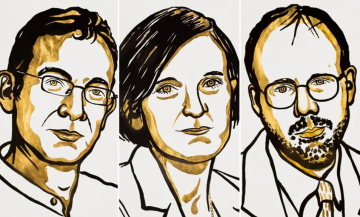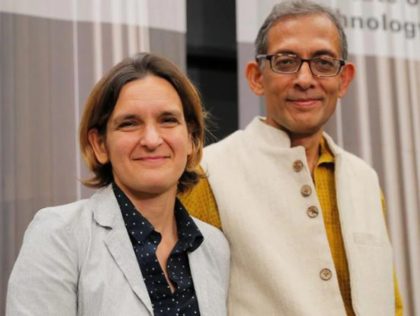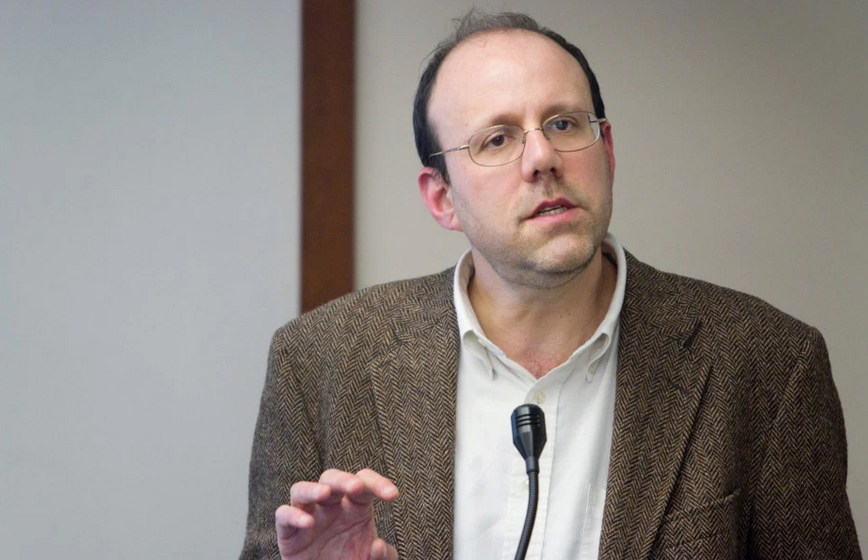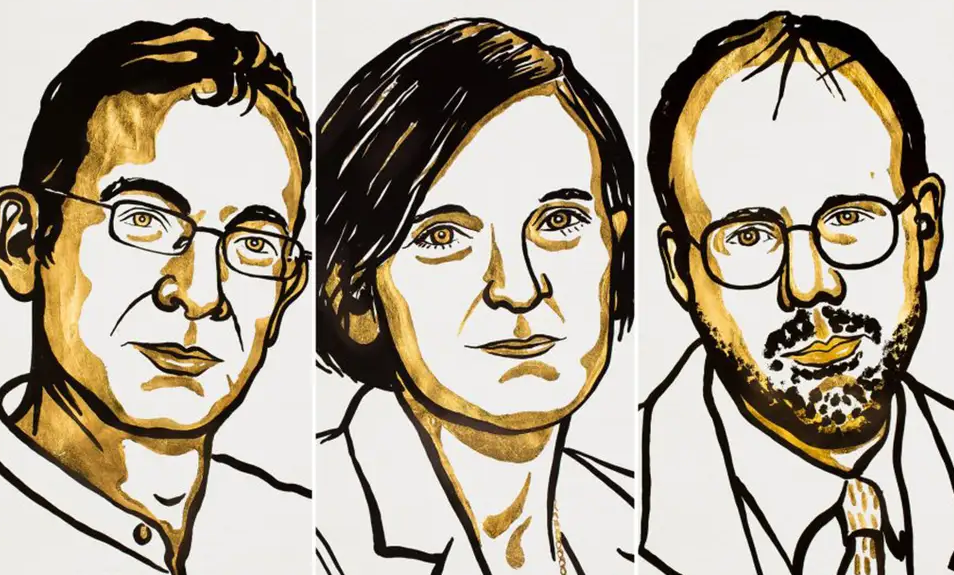
This year, the awardees of the Nobel Prize for Economics are three pioneers, in the fight against poverty: Esther Duflo, Abhijit Banerjee, and Michael Kremer. The prestigious award was announced by the Royal Swedish Academy of Sciences on Monday morning (14/10/2019) in Stockholm.
Esther Duflo, Abhijit Banerjee, and Michael Kremer were awarded the prize due to their work around poverty, which, according to the Academy, has “dramatically improved our ability to fight poverty in practice.” More than 700 million people live in extreme poverty, according to the World Bank. The 3 economists fundamental contribution was their experimental approach to development economics in the context of poverty. They built a scientific framework and used big data to identify causes of poverty, estimate the effects of different policies and then evaluate their cost effectiveness. Specifically, they developed randomised control trials (RCTs) to do this. They used these to study different policies in action and to promote those that were most effective.

Scholars Abhijit Banerjee, 58, Esther Duflo, 46 ( which are married partners) are professors at the Massachusetts Institute of Technology (MIT) besides beng a couple. The two worked together for a long time before getting married in 2015. Ms Duflo is the second woman to be awarded a Nobel in economics which is also unique and their personal stories, fascinating.
The Indian-born Mr Banerjee and Paris-born Ms Duflo grew up in completely different worlds. Esther Duflo had a deep experience, when very young. She was six and read a comic book about Mother Teresa that described Kolkata (formerly Calcutta) as an overcrowded city where each resident lived on a 10 sq ft space. At 24, when she finally visited the city as a graduate student at MIT, she instead found trees and empty pavements and little signs of the misery depicted in the comic book.
Abhijit Banerjee, an Indian citizen, lived close to a neighborhood where the poor people lived, in little shanties behind his home in Kolkata. Paradoxically, he envied them, as the children were all the time playing. He would play sports with the kids there, and they would beat him at any sport, leaving him jealous.
“This urge to reduce the poor to a set of clichés has been with us for as long as there has been poverty. The poor appear, in social theory, as much as in literature, by turns lazy or enterprising, noble or thievish, angry or passive, helpless or self-sufficient,” Mr Banerjee and Ms Duflo wrote a book together: “Poor Economics“, which examined the real nature of poverty and how the poor reacted to incentives.
The couple’s view was that the poor were always seen/described through polarized views: either admired or pitied. Another interesting point described by the couple is that the knowledge poor people hold about their own lives and economic existence is disvalued.
The couple has been working with the world’s poorest since 2003. Mostly, they focus on how markets and institutions work for them. They founded the Abdul Latif Jameel Poverty Action Lab (J-Pal) at MIT to study poverty.
Some of the unique findings they found are how “It is probably not enough just to provide the poor with more money, and even rising incomes may not lead to better nutrition in the short run. As we saw in India, the poor do not eat any more or any better when their income goes up; there are too many pressures and desires competing with food,” they write.
The third awardee, Michael Kremer is also a scholar, being the Gates Professor of Developing Societies in the Department of Economics at Harvard University. His impressive cv includes being a Fellow of the American Academy of Arts and Sciences, a recipient of a MacArthur Fellowship and a Presidential Faculty Fellowship, and was named a Young Global Leader by the World Economic Forum.

Kremer’s research consists of conducting experiments to explore the root causes of poverty in developing countries. He frequently works with government agencies and nonprofit organizations to develop innovative policies in fields such as education, healthcare, and microfinance. “The field of development economics has really undergone tremendous growth in the past few decades,” he said. “We’re bringing in a lot of perspectives not to replace but to complement the standard analytic approaches that economists have.”
Analysing those complex structures and systems, is precisely where the contributions of Banerjee, Duflo and Kremer lie. The Nobel citation gives several examples of their impact, including how their research has helped education, health and access to credit for many in the developing world, most famously in India and Kenya.
An example, is child mortality and health—issues of immense significance in the developing world. Theory can tell us that women’s empowerment is important for child health and mortality outcomes, but cannot tell us which policy will be most effective in combating this. It could be a focus on educating mothers, or access to healthcare, or electoral representation, or marital age legislation.
An important conclusion of their work is how theory cannot tell us how large and significant the impact will be of these various policies. And this is where the significance of the Nobel prize this year comes in, as it really tries to bridge both, theory and practice!

Maria Fonseca is the Editor and Infographic Artist for IntelligentHQ. She is also a thought leader writing about social innovation, sharing economy, social business, and the commons. Aside her work for IntelligentHQ, Maria Fonseca is a visual artist and filmmaker that has exhibited widely in international events such as Manifesta 5, Sao Paulo Biennial, Photo Espana, Moderna Museet in Stockholm, Joshibi University and many others. She concluded her PhD on essayistic filmmaking , taken at University of Westminster in London and is preparing her post doc that will explore the links between creativity and the sharing economy.












